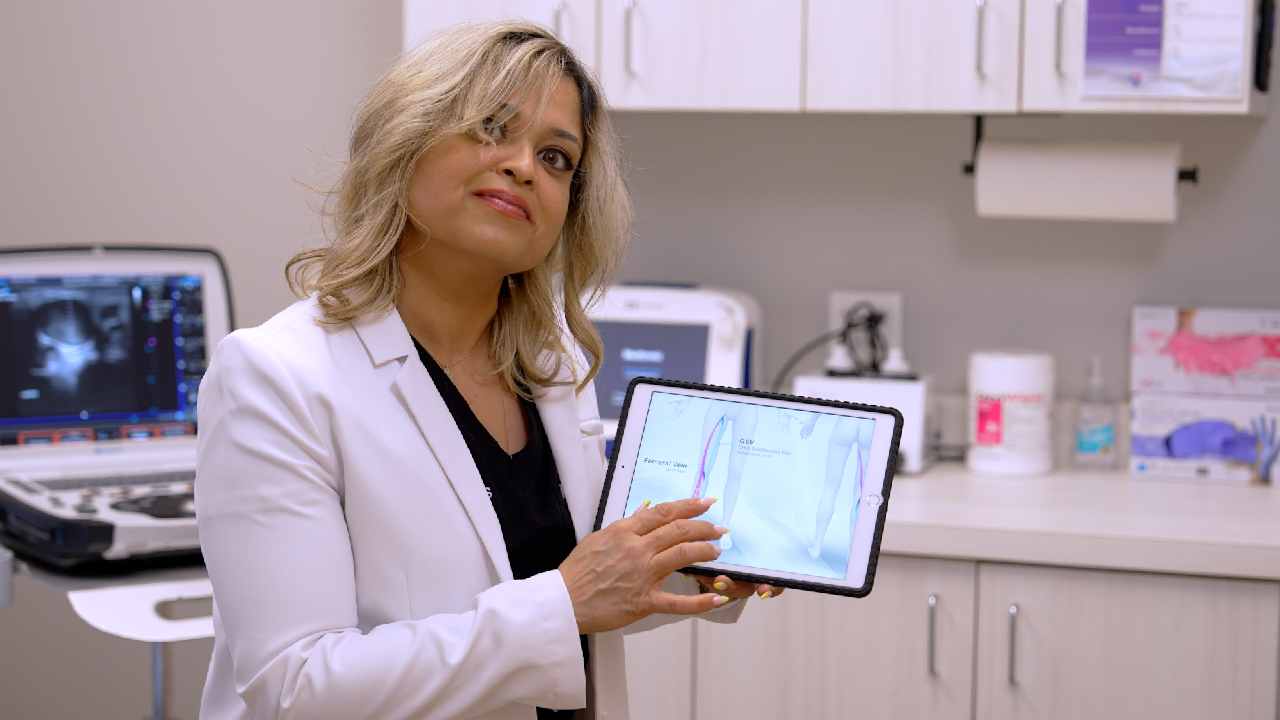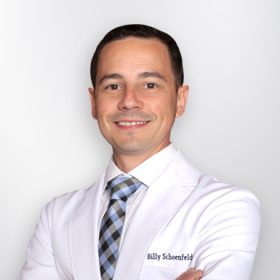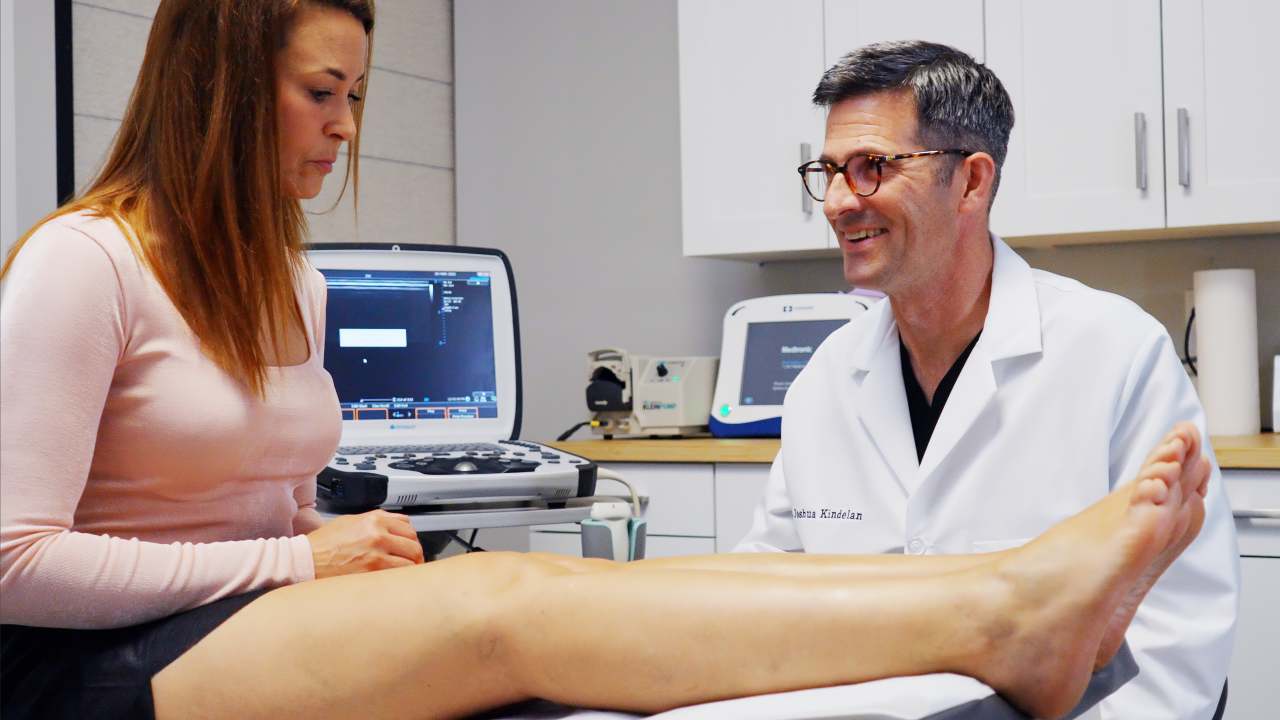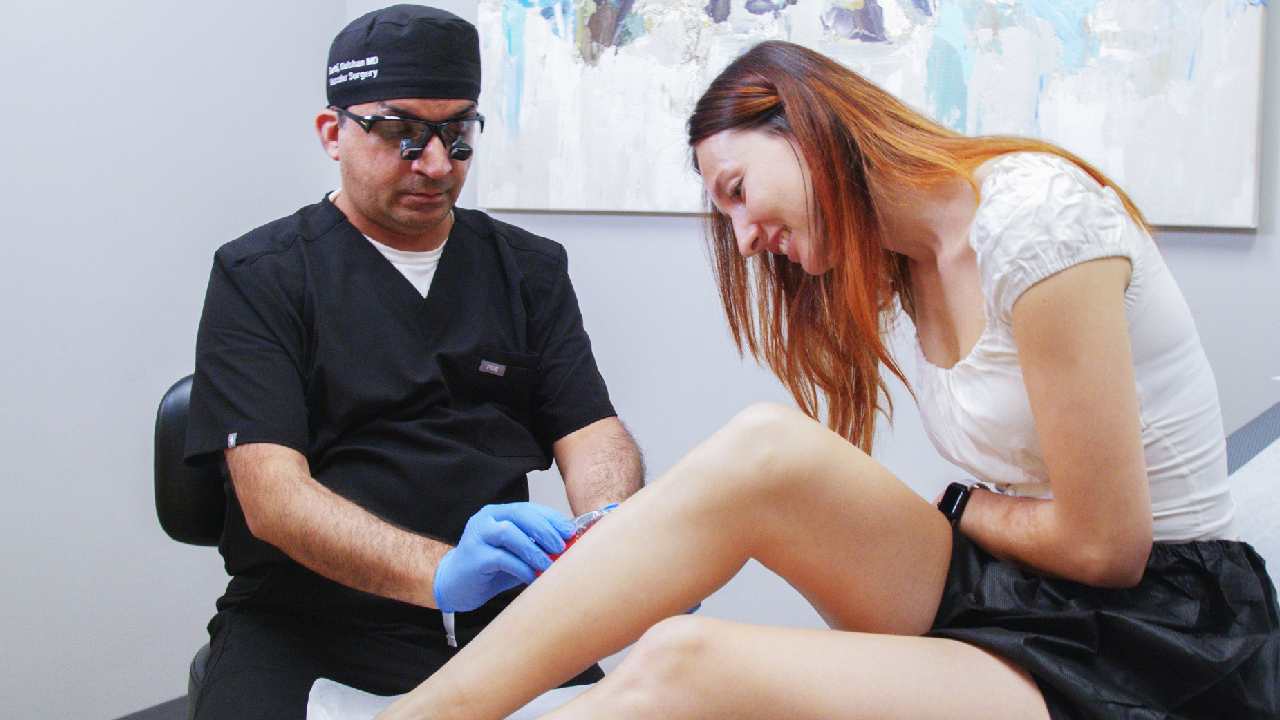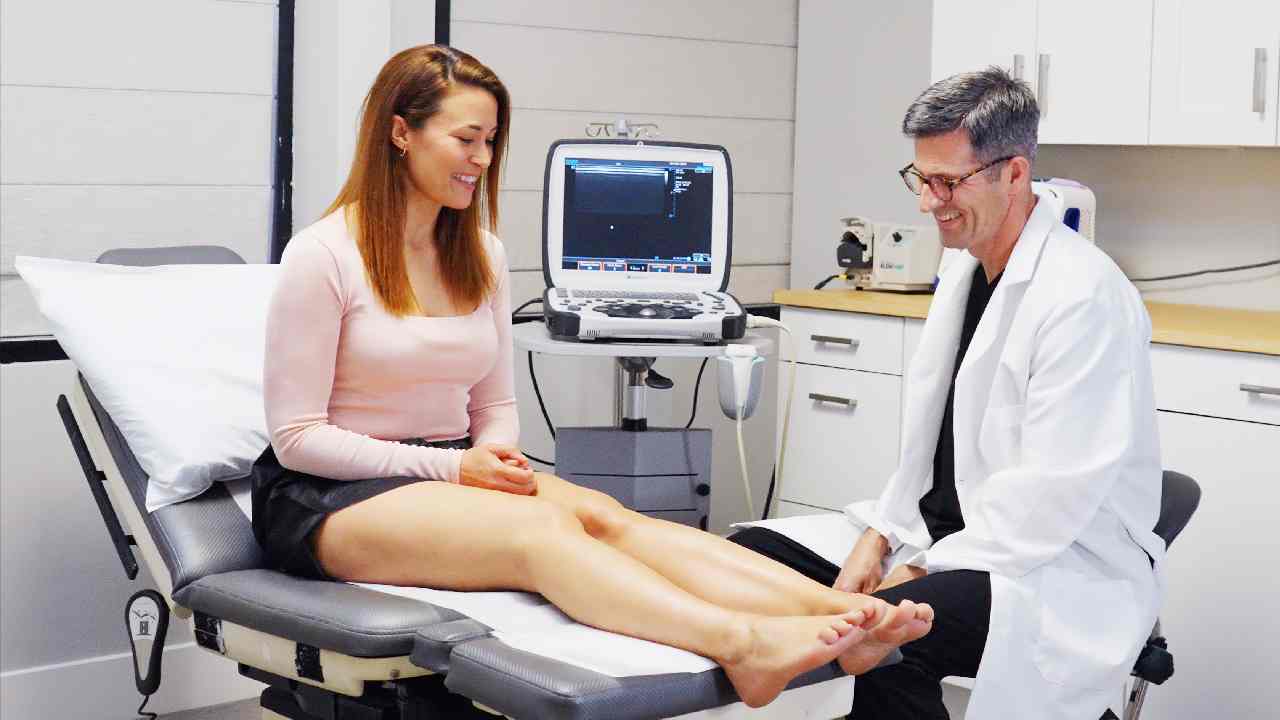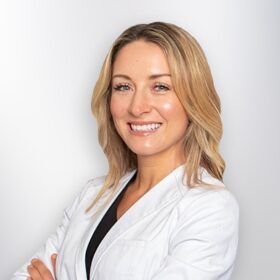
Treatment for varicose veins and spider veins has improved dramatically in recent years. It is no longer necessary to undergo invasive vein-stripping surgery for vein disease management. Today’s procedures can be done at your vein treatment clinic, usually completed in less than an hour. Best of all, patients don’t experience any downtime after treatment. You can look forward to returning to your regular activities shortly after the procedure, and follow-up care after vein ablation is minimal.
You need to know these details about the causes of vein disease, how it is treated, and how to ensure a fast and full recovery once treatment is complete.
Care After Vein Ablation – Basic Steps:
Leave Your Dressing in Place
Before you leave the office, your vein doctor will give you specific instructions on caring for yourself. The treated area will be covered with a medical dressing, which you should leave in place for the periods of time requested by your physician. At Vein Treatment Clinic, we recommend leaving your treatment in place for one whole day. You may see a small amount of blood on the dressing, which is normal.
Take Anti-Inflammatories As Needed
After the vein ablation procedure, the anesthetic wears off in a few hours. You might feel mildly sore or experience other minor discomfort during this time. Over-the-counterpain medication, such as ibuprofen, is usually enough to resolve this issue.
Wear Compression Stockings
Your vein specialist will recommend that you wear medias de compresión. for at least three days. This step is critical for care after vein ablation because it promotes proper blood flow, keeps bruising down, and prevents the formation of blood clots.
Walk Frequently
At the Vein Treatment Clinic, we encourage patients to walk for ten minutes every hour while awake for the first 24 hours after the procedure. Walking helps prevent blood clots. Light jogging and most normal activities are fine. Avoid lifting weights heavier than 30 pounds for the first week after the procedure.
Avoid Pools and Public Baths Until the Area is Healed
Showering after vein ablation is fine, but you should avoid baths, swimming pools, and similar until the treated area has fully healed. This is important for preventing infection.
Are you interested in getting more information about your condition or getting a treatment?
Fill the form below to start!
What Causes Vein Disease and Who is at Risk?
A variety of factors can put you at risk for vein disease. For example, spending a lot of time sitting or standing makes it more likely that you will experience issues, and people who have a family history of vein disease are at greater risk. Some of the first signs of developing vein disease include varicosas, spider veins, leg cramps, and a feeling of heaviness in your legs.
All of these symptoms occur because your veins aren’t functioning properly. Veins are responsible for moving blood to your heart to pump it to your lungs. The trip from your toes to your heart is long, and blood is traveling against the forces of gravity. A series of valves inside your veins helps ensure that blood only travels in one direction.
Issues start when valves become diseased or damaged. Unhealthy valves allow blood to leak backward, pooling in the lower half of the body. This condition is known as Chronic Venous Insufficiency (CVI).
The pressure inside your veins builds as more blood collects in your legs. This damages additional valves, as well as the vessel walls. Veins begin to swell, and sometimes they protrude against your skin. Bulging veins, also called varicose veins, must be treated by a specialized vein doctor to ensure they don’t create additional health issues.
One of the most common treatment methods is vein ablation. This procedure is minimally invasive, so there is no need for a vascular surgeon. A vein ablation can be performed by a vein specialist.
What is Vein Ablation?
Vein ablation is a procedure that treats diseased vessels, so that you don’t experience the symptoms of vein disease. Through the use of heat or lasers, the damaged vein is closed. Fortunately, this procedure doesn’t affect your body’s ability to move blood to your heart.
Your circulatory system includes thousands of miles of veins that work together to keep blood flowing through your body. There are built-in redundancies in the circulatory system so that If one of your veins is too damaged for blood to flow through, the blood is automatically rerouted to other, healthier vessels. Vein ablation procedures deliberately close unhealthy veins. Blood automatically finds an alternative path to the heart, and the tissue from the treated vein is reabsorbed by your body.
The two most common vein ablation procedures are Radiofrequency Ablаtіоn (RFA) y Endоvеnоuѕ Laser Ablаtіоn (EVLA). RFA collapses the walls of diseased veins using heat, while EVLA uses laser energy to accomplish the same results. The ablation treatment is minimally invasive, and most patients report little or no pain. Your vein doctor uses local anesthesia in the treated area to ensure you are as comfortable as possible.
This vein disease treatment is popular, because it is highly effective. Vein ablation doesn’t require you to undergo full anesthesia; it can be done in an hour or less. Post-procedural recovery time is minimal, and patients usually return to normal activities the same or the next day. Your vein doctor in New York, New Jersey, California and Maryland will explain your options and recommend the best treatment for your unique situation.
When Should I Call the Doctor?
Generally, you will have a follow-up appointment within a few days of your treatment, so your vein doctor can ensure that the vein has closed and everything is healing well. In the meantime, your vein specialist wants to hear from you if you experience anything out of the ordinary. For example, if you notice a lot of bleeding, swelling, or excessive pain, call the office right away. In rare cases, a blood clot may develop into a condition called deep vein thrombosis. This is an urgent situation that requires immediate care.
The Board-Certified specialists at the Vein Treatment Clinic have the expertise necessary to accurately diagnose your condition and are available at any time to answer your questions after a procedure. If vein disease is affecting you, these caring physicians will partner with you to choose the best treatment for your situation. Patients of the Vein Treatment Clinic often comment on the high quality of care after vein ablation, as these physicians make your comfort and health their priority. Visit the Vein Treatment online to learn more and to schedule your initial consultation.
FEATURED POSTS BY VEIN DOCTORS









